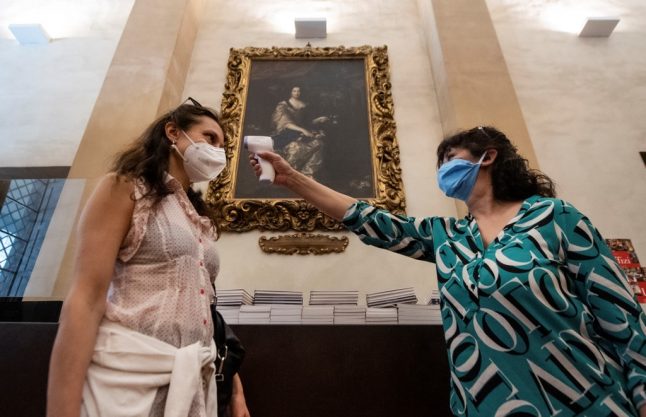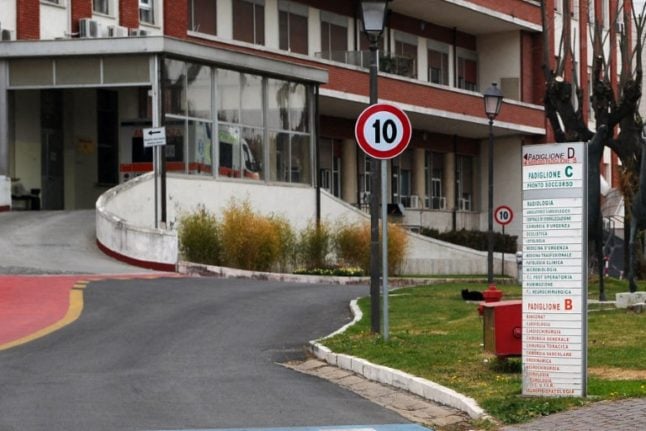HEALTH
Covid-19: Italians warned to be cautious after slight rise in new cases
Authorities have reminded people in Italy to follow three basic health precautions as the number of infections rose slightly.
Published: 23 July 2020 18:08 CEST

A woman has her body temperature scanned at entrance to the Uffizi Gallery Museum in Florence. Photo: Tiziana Fabi/AFP
Italy registered an increase in the number of confirmed coronavirus cases on Thursday, meaning infections had risen in the country for a second day running.
Earlier on Thursday, Italian Health Minister Roberto Speranza warned in a radio interview that a second wave later is the year was “possible”, and urged people to continue to take three “essential” measures to lower the risk: wearing marks, washing hands regularly, and social distancing.
There were 306 cases detected in 24 hours, compared to 280 on Wednesday and 128 on Tuesday, according to data from the Civil Protection Agency,
Officials also reported 10 deaths attributed to Covid-19 in the past 24 hours, with the total Italian death toll rising to 35,092.
There are now 12,404 known positive cases in Italy, and 49 patients are in intensive care.
While many Italian regions have recently been recording zero new cases, on Thursday only one region, Valle d'Aosta, had no new positives in the last 24 hours.
Out of the 306 cases identified, 82 were in Lombardy, 55 in Emilia Romagna, 30 in the autonomous Province of Trento, 26 in Lazio, 22 in Veneto, 16 in Campania, 15 in Liguria, and 10 in Abruzzo. All other regions reported a single-digit increase.
The health ministry said the situation in Italy remains “extremely fluid,” stating that Thursday's figures “highlight how the epidemic of Covid-19 in Italy has not yet ended.”
“In some regions, the presence of new cases imported from another region and/or from a foreign country is reported.”
Speranza had said on Tuesday that, while Italy is now “out of the storm” and over the worst of the health emergency, people in the country must remain cautious.
He confirmed that ministers are still discussing whether or not to extend the current state of emergency in Italy beyond the current cut-off date of July 31st.
It is widely expected to be prolonged until October 31st though this has not yet been officially confirmed, Italian media reports.
Url copied to clipboard!


 Please whitelist us to continue reading.
Please whitelist us to continue reading.
Member comments